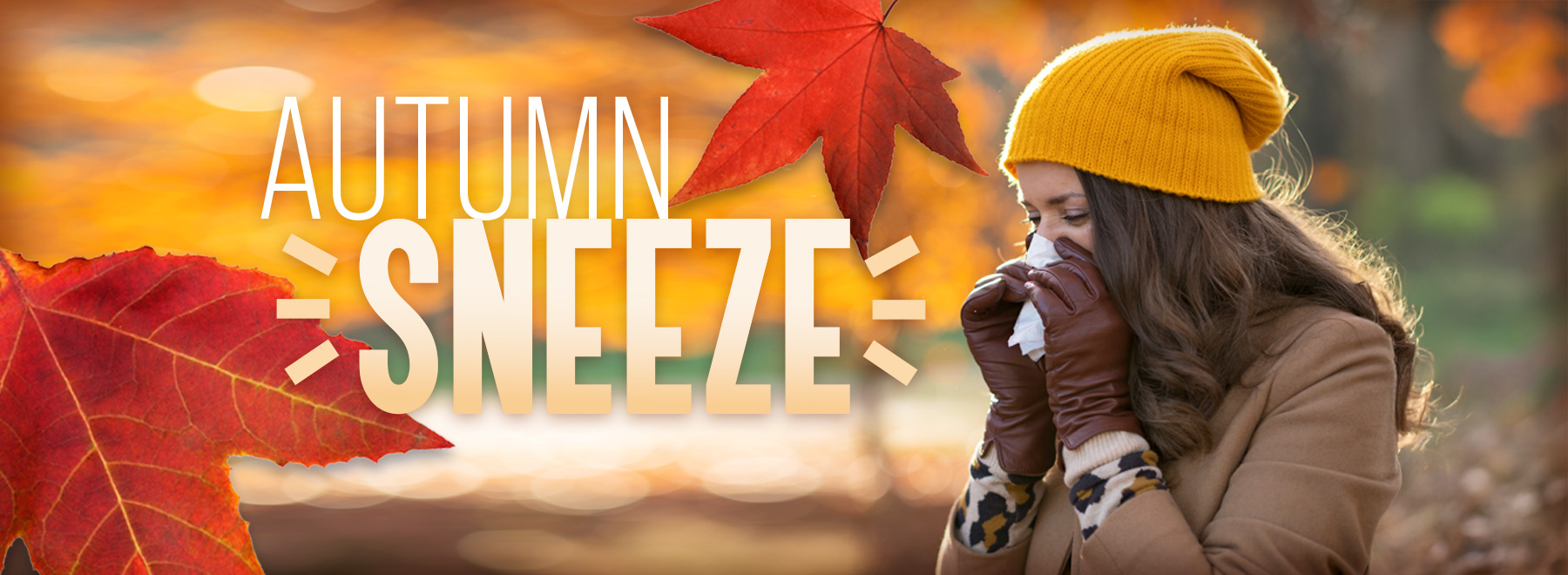Tried-and-true remedies can help fight fall allergies
Fall allergy season in Mississippi often follows the uneven path of how long it takes summertime weather to finally blend into fall’s cooler days.
For those most prone to feeling every itch and stifling every sneeze at work, October is the time to double down on managing symptoms for chronic allergy sufferers.

“The key to effective management of allergy symptoms is to prevent or at least minimize them before you become totally miserable,” said Dr. Gailen Marshall, the R. Faser Triplett Sr. MD Chair in Allergy and Immunology at UMMC. “Using over-the-counter medications such as nonsedating antihistamines and intranasal steroids can be highly effective if started as soon as symptoms begin.”
Traditionally, various weeds such as ragweed was the most prevalent airborne trigger from September through November for those with the most sensitivity to them. Ragweed pollen peaks during this time and can cause season allergic rhinitis, commonly called hay fever, which affects about 25 million people in the U.S., past studies by the Centers for Disease Control and Prevention have shown.
“Over the past decade or so, the fall weed pollen season has intensified and lasts longer – which means more pollen for a longer time,” Marshall said. “What once was a six- to eight-week season has become a 12- to 16-week season often lasting through Thanksgiving as the weather remains mild.”
The American College of Allergy, Asthma and Immunology (ACAAI) recommends a short but detailed list of things allergy sufferers can do to manage their fall allergies:

Grogan Start medications now. “Many allergy medications work better when used every day. It’s often easier to keep symptoms from occurring rather than getting control once they’ve started,” said Dr. Charles Grogan, assistant professor of medicine and pediatrics and medical director of the UMMC Adult Allergy Service.
Identify triggers, then avoid them. “Although many of us are focused on pollens during this time of year, perennial allergens like dust mites should still be considered,” Grogan said. “Simple interventions like allergen encasements for your mattress and pillows can go a long way towards preventing dust mite allergies. Unfortunately, even good avoidance measures can still fall short as we enjoy the nicer weather in the fall.”
Consider allergy immunotherapy. UMMC is now offering a new form of immunotherapy called “cluster shots,” Grogan said. “This allows us to rapidly build our patients up to their maintenance dose for shots, allowing them to get relief 4-5 months quicker than standard allergy shot plans.”
Keep mold under control. Mold can grow anywhere – from basements to bathrooms, from leaks under kitchen and bathroom sinks to leaf piles in the backyard. Allergy specialists recommend cleaning standing water as soon as it appears and to scrub mild from surfaces with water and dry completely. Also, keeping gutters clean and keeping home humidity under 60% can also help.
To make an appointment with UMMC Allergy, Asthma and Immunology, call 601-815-1078 or visit here.
The above article appears in CONSULT, UMMC’s monthly e-newsletter sharing news about cutting-edge clinical and health science education advances and innovative biomedical research at the Medical Center and giving you tips and suggestions on how you and the people you love can live a healthier life. Click here and enter your email address to receive CONSULT free of charge. You may cancel at any time.



